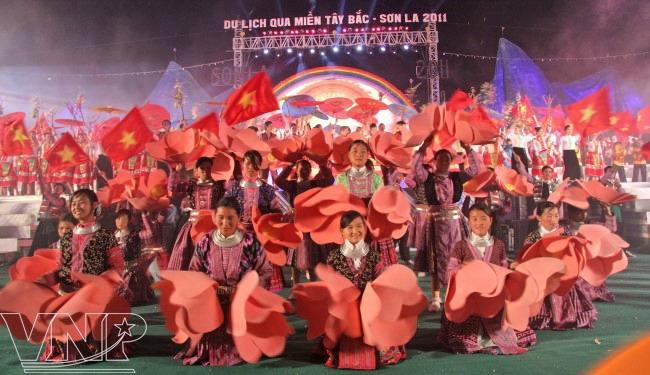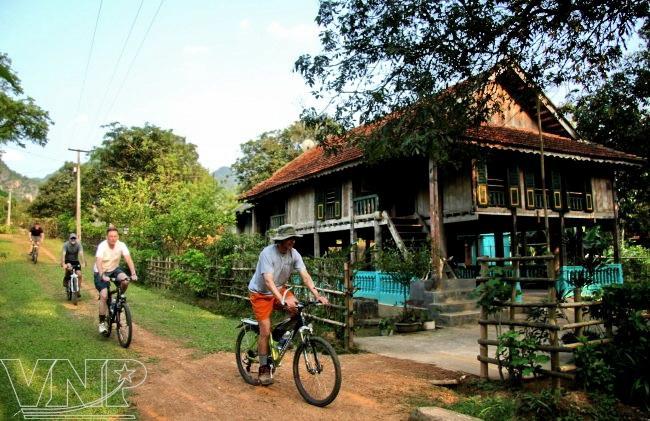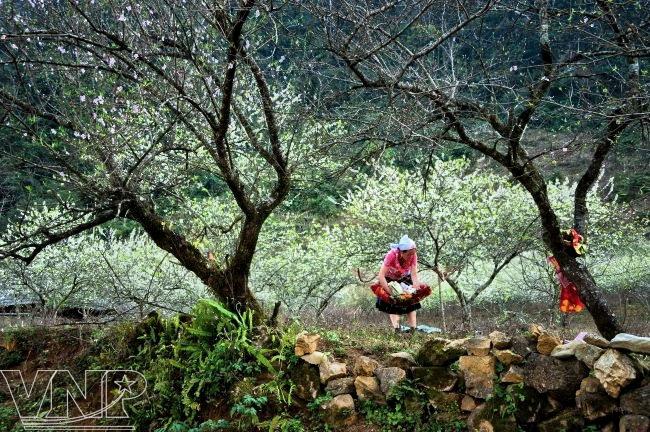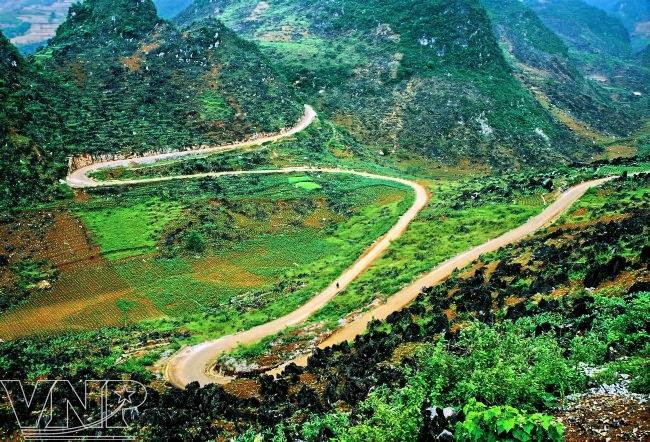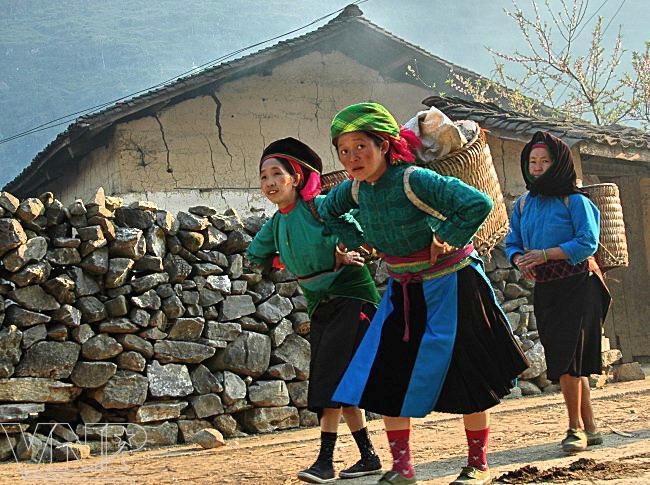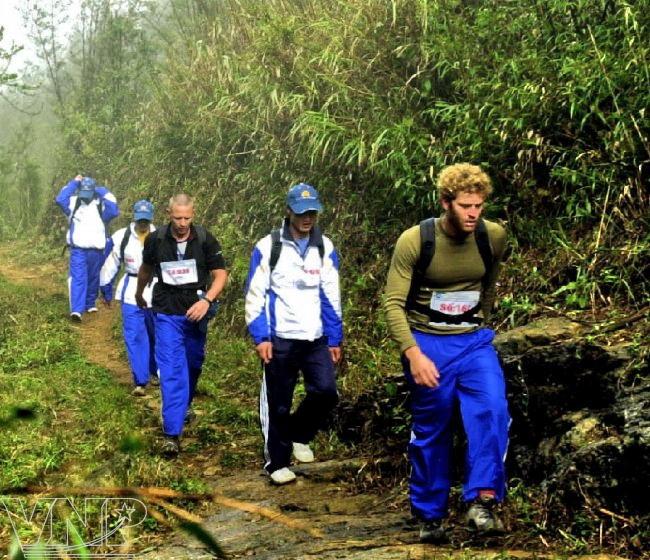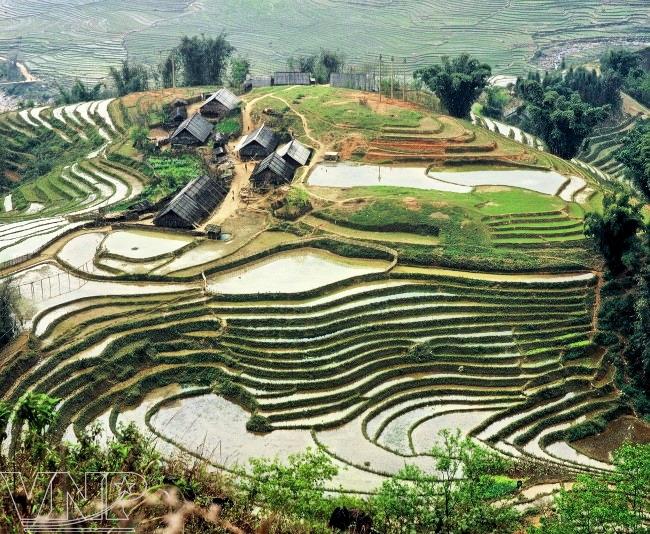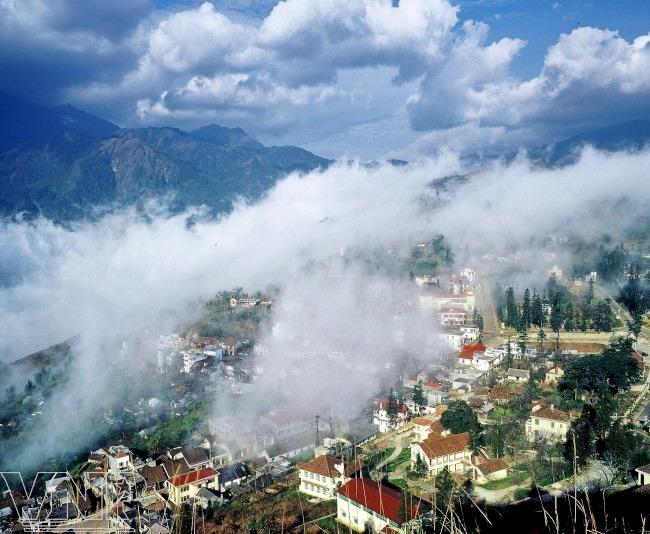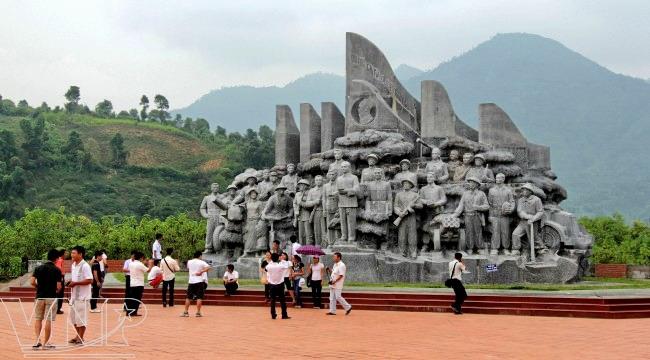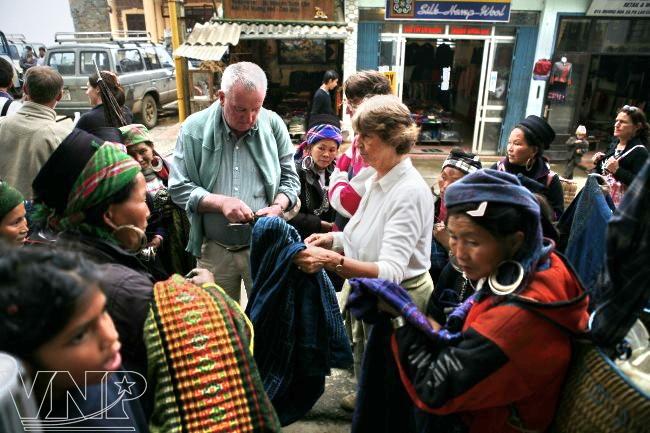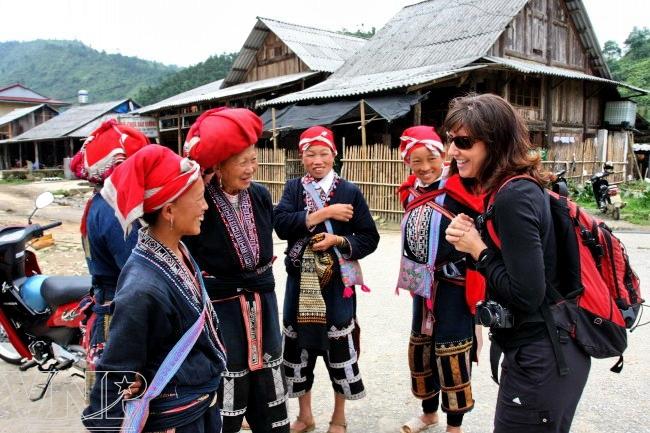
Each time tourists visit the Northwest, they have different emotions. This is shared by many people who joined tours to explore Tay Bac's hamlets and well-known tourist sites in the eight provinces of Lao Cai, Son La, Phu Tho, Ha Giang, Yen Bai, Dien Bien, Lai Chau and Hoa Binh.
Each time tourists visit the Northwest, they have different emotions. This is shared by many people who joined tours to explore Tay Bac’s hamlets and well-known tourist sites in the eight provinces of Lao Cai, Son La, Phu Tho, Ha Giang, Yen Bai, Dien Bien, Lai Chau and Hoa Binh.
Our team participated in a tour to discover “the Tay Bac route” during sunny and cool days in August. The starting point of our trip was in Hoa Binh Province. We visited the Hoa Binh Hydroelectric Plant, Lac Hamlet, Thac Bo Cave, Ret Grotto, Hoa Tien Cave and Pu Nooc primeval forest.
Leaving Hoa Binh Province, we continued our trip to Son La Province. Here, we enjoyed the beauty of the green romantic steppe in Moc Chau District where there is a famous dairy farm.
We also visited the historic site of Son La Prison built on the top of Khau Ca Hill in 1908 by the French to detain Vietnamese revolutionaries and other patriots.
The tour to explore the “Tay Bac route” goes through eight northern mountainous provinces, including Hoa Binh, Son La, Dien Bien, Lai Chau, Lao Cai, Ha Giang, Yen Bai and Phu Tho. Each trip lasts 4-10 days.
Means of transport can be car, train or plane. This is a new tour organised with support from the Netherlands Development Organization (SNV) and the local authorities to create a new tourist product that can connect many famous tourist sites in Tay Bac.
After exploring the beauty and culture of Son La Province, we went to Dien Bien Province.
We visited the former Dien Bien Phu battlefield with its famous sites, such as Muong Thanh field, the headquarters of the Dien Bien Phu Campaign in Muong Phang Commune, the Him Lam, Doc Lap and Ban Keo entrenched fortifications, the A1, C1, D1, and E1 Hills and the center of the French fortresses where General De Castries’ bunker was based.
We also visited the Pha Din Pass, Muong Nhe primeval forest, Pa Khoang Lake and Tham Bang Cave to explore the wild beauty of the northwest mountains and forests. From Dien Bien, we went up to Lai Chau Province to explore the unique features of the customs, Xoe dancing and the brocade weaving craft of the Thai ethnic people in Vang Pheo Hamlet.
The highlight of the “Tay Bac route” tour was probably the next stop in Lao Cai Province.
This area is inhabited by ethnic groups living together such as the Kinh, Mong, Tay, Dao, Giay, Thai, Phu La, Ha Nhi and Nung, creating a rich and diverse cultural space.
Lao Cai has a lot of beautiful and amazing natural scenery, such as Thuy Tien Cave (in Bat Xat), Ta Phoi Cave (in Cam Duong), Tien Cave (in Bac Ha) and Xuan Quang Cave (in Bao Thang).
Visitors to Lao Cai can not leave without exploring Sa Pa Town which is misty throughout the year, and trying to climb the 3,143m-high Phang Xi Pang Mountain that is dubbed the “roof of Indochina”.
The next destination in our trip was Ha Giang Province with many famous areas which have been put into poems and songs, such as Dong Van Rock Plateau, Tay Con Linh mountain range, Quan Ba heaven’s gate, Ma Pi Leng Mountain, Lung Cu flagpole, Nho Que River, Dong Van ancient town and Khau Vai love market.
Leaving Ha Giang we went to Yen Bai to visit the Suoi Giang eco-tourist site where there are forests of Shan tuyet tea trees which are hundreds of years old. We saw beautiful terraced rice fields under the sun in Mu Cang Chai, visited Thac Ba Lake, one of the largest reservoirs in Vietnam, and witnessed the title-awarding ceremony also known as the adulthood ceremony of the Dao ethnic people.
The last destination of our tour was Phu Tho Province, the sacred ancestral land attached to the legend of the race of the Fairy and the Dragon of the Vietnamese nation, and the history of national construction and defence of the 18 Hung Kings. We visited and offered incense at the Hung Temple and enjoyed the gardens of palm trees, hills of tea trees and green rice fields.
The trip left an emotional impact and an enjoyable experience for Vietnam, a beautiful and amazing country. The “Tay Bac route” is an inviting and attractive tour for those who love to explore the northwestern mountainous area full of mysteries.
|
The opening ceremony of the Tay Bac tourism programme 2011. Foreign tourists visit hamlets in Mai Chau, Hoa Binh Province. Spring in Tay Bac. The immense beauty of the Tay Bac Route. Mong ethnic people in Ha Giang Province. Walking to Fansipan Mountain. The mountain town of Sa Pa with early morning fog. Tourists visit the Muong Phang Victory Monument in Dien Bien Phu City. Foreign tourists buy traditional woven products of ethnic people in Sa Pa. Tourists learn about the culture and life of ethnic people in Tay Bac. |
(Source: VNP)

